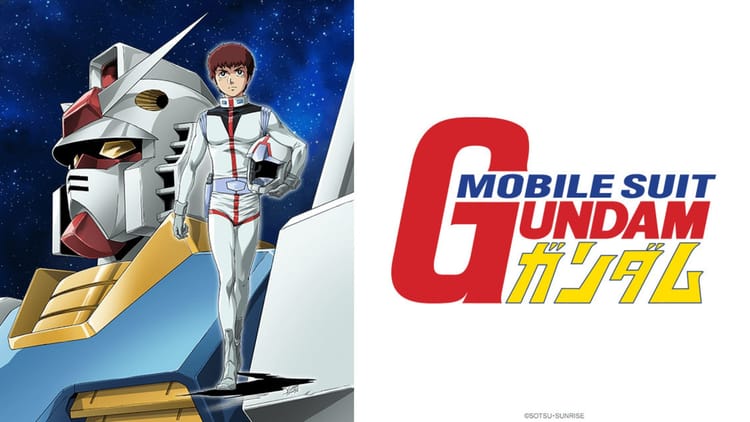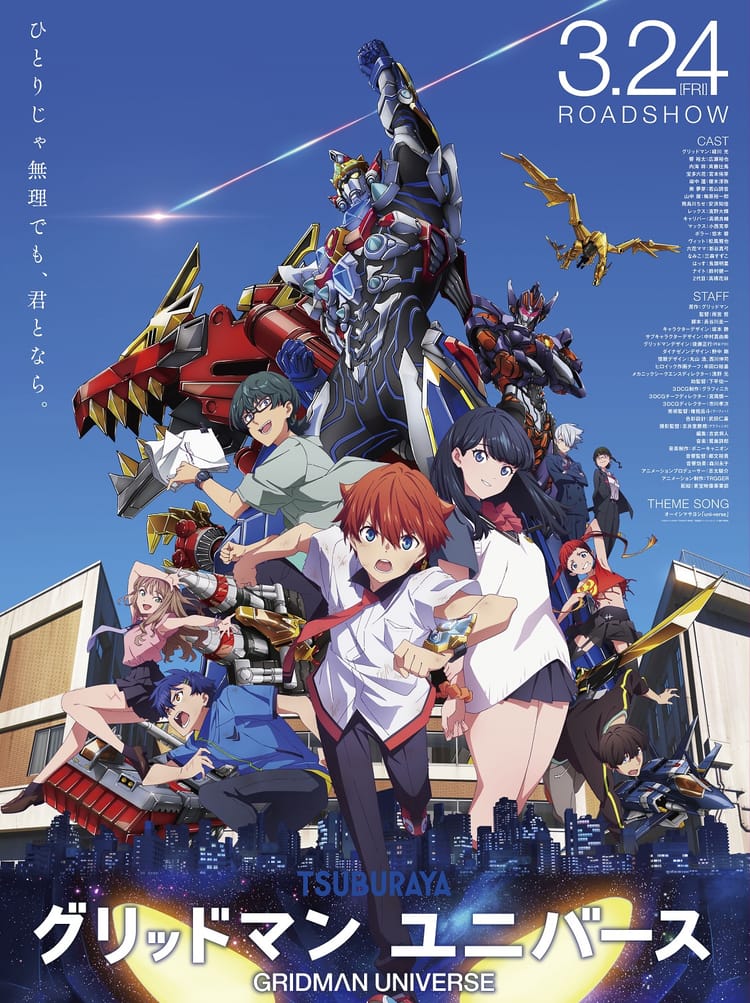Let's Steal Their Canon: Corporate Control, Setting Bloat, and Fan Power

Canon is often a discussion point around fan culture. Stories are viewed and judged for how they interact with the world set up by pervious works in the setting, if they are canonical. On one hand this makes sense, people don’t want to use their time exploring a setting they enjoy if it does not actually have an effect on the world they love or does not respect that world. Yet, this view that a story must have a purpose for the world its in has problems. It often leads to blotted settings that can bog down a creator looking to tell an interesting and novel story in the setting. The people behind Fallout TV felt this when fans lost their shit when they noticed a contradiction between what the video games, particularly Fallout 1, 2, and New Vegas said, compared to the 2024 TV Show (Livingston, 2024). Staff at the current owners of Fallout, Bethesda Softworks, had to come out and assuage them that the games they loved were still canon. Canon is important to fans who feel invested in works and shared universes.
Yet in long-running works, canon can become a prison. We will look at two differing prisons that canon can trap a world in. The first will be Universal Century from Mobile Suit Gundam. A world that has been added to since 1979 via all sorts of different works to the point the core philosophy of the setting feels muddled and confused, this is exacerbated by the fact that the worlds of Mobile Suit Gundam are owned not by their creators, but by a large corporation more concerned with profit than artistic coherence. We will follow the trend of corporate power over canon while we explore the Star Wars galaxy and how Disney felt the need to massively trim canon to better allow them to tell stories. We will conclude on my theory of canon, one that centres fans and their own stories, over the demands that everything be explained and explored, which is what leads to the bloat of canon.
The world of the Universal Century is immensely compelling. The very first worlds we hear is a narration describing the setting that has become iconic “It is the year 0079 of the Universal Century. A half-century has passed since Earth began moving its burgeoning population into gigantic orbiting space colonies. A new home for mankind, where people are born and raised. And die” (Zero, 2019). It immediately sets out that this world is bleak, even before the opening narration is done, we are shown a war that has killed half of humanity. Yet, despite that bleakness the end of Mobile Suit Gundam is a kind of hopeful. That is the core of all Mobile Suit Gundam works in my mind but especially the Universal Century entries. the world will be horrific; you must persist to make it better and fight for that. To me, if a Universal Century work is not engaging with those themes, it is not worthwhile. The need to explore this theme is in tension with the settings owner, Bandai, to make as much money as possible.
The Universal Century is a popular and beloved setting for reasons mentioned above. It is also rich with interesting ideas one can play around with an add to. This has led to Bandai releasing an incredibly large number of stories in the setting. There are countless Tv series, OVAs, books, manga, and other things that use the Universal Century as a backdrop. These things have long since stopped adding to the setting and instead are a kind of bloat on it.. A core problem is the One-Year War gundam problem. In the original Mobile Suit Gundam, the titular gundam was a state-of-the-art mobile suit, as far as was known, only one made it out of side 7 intact, with the rest of the federations mobile suits being a type of GM. Branding demands would not keep it this way. Every new thing that was released about the One-Year War needed a gundam, Gundam is literally the name of the series. This led to a proliferation of gundams, cheapening what used to be something special. The gundam was, of course, studied after arriving at the Jaburo base and thus in makes sense by the end of the war there could conceivably be a few floating around the conflict. This cheapening of the titular gundam also applies on a series wide basis about things such as the themes we saw previously.
In discussions of Mobile Suit Gundam, no creative looms as large as Yoshiyuki Tomino. The series director and one of the original creators of the anime, he had similar roles in the sequel series Zeta, ZZ, and the movie, Char’s Counterattack (Anime News Network, n.d.). He has also had his hand in novels such as Hathaway’s Flash and Beltorchika’s Children. Yet he, and no other original creators of the series own it. it is under the control of Bandai. They have the power to green-light new works in the franchise and often choose to do things in the Universal Century due to its recognition. This has led to a dilution in what the Universal Century means. It is no longer Tomino’s story to tell. Works such as Unicorn, Narrative, Requiem for Vengeance, and others do not understand what the Universal Century is about. Instead, they weigh down the Universal Century and misrepresent its meaning often preferring style over actual substance. What is canon when the people who originally made the work have no say in it?
Star Wars is another beloved science fiction work from the 1970s that has spread to become a cultural institution. Much like Mobile Suit Gundam, that lead to a bevy of other works in the setting. Comics, card games, tabletop RPGS, video games, books and at least one TV show. Once again like Gundam, people really resonated with these additions to the setting. Things such as the Thrawn trilogy of books, games such as Knights of the Old Republic and its sequel, and The Clone Wars TV show pulled people into the setting and made them life long fans of Star Wars. But, unlike with Gundam, the principal creator, George Lucas, did own the rights to Star Wars and thus had a say in what was created.
That is until 2012 when he sold, among other things, the rights to Star Wars to Disney. Lucas should not be begrudged for selling the property. While the vitriol has died down, the backlash to the prequel trilogy films was immense and angry. Selling the franchise could act as a way to make Star Wars not Lucas’ problem anymore. However there were downsides to the sale. The Clone Wars TV show, which had hit its stride in the back half of season 5 would be given a 13-episode season 6 on a different network, half the episodes of the other seasons, before being unceremonially cancelled. Ahsoka, fan-favourite and one of the main protagonists of the show, would not appear in season 6 after leaving the jedi order in season 5. It would take until 2020 to receive another half season of the show, which allowed it to conclude properly, with the creative staff given just 12 episodes to tie up lose ends, with 4 of those episodes being an extended pilot for a new show.
Cancelled projects were not the only casualty of the purchase, the vast majority of the extended universe of Star Wars was declared non-canon. This is not as bad as it appears, these stories would still continue to be accessible and purchasable, they were simply moved to something known as the Legends timeline. This was a holding place for all these stories that Disney did not wish to have to deal with in their version of the Star Wars Galaxy. Stories that resonated strongly with people such as the Knights of the Old Republic Games, and the Thrawn trilogy of books would live here now. The only pre-2014 canon material was the six core Star Wars films and The Clone Wars TV show, Disney would build out a new canon from those pieces. Before the purchase of Star Wars, canon was murky in that some things were considered “quasi-canon” more can be found on the Wookiepedia entry linked in the references section (Wookiepedia, n.d.). The move by Disney to vastly trim what is considered to have happened in the galaxy makes sense. They tapped creatives who had stories to tell and did not want those people to be held to fitting with 40 years of stories. Unfortunately, Disney handed the reins of their largest swing at creating new Star Wars material to people who did not understand what made it special.
The main Disney Star Wars product was a series of 3 films dubbed the sequel trilogy. The films are more interested in the iconography of past Star Wars works rather than being a compelling story themselves. The first, The Force Awakens, is a loose remake of A New Hope but significantly worse. The second, The Last Jedi, is more compelling but is focused on litigating things such as the jedi order and feels forced into the trilogy of films, having different aims than the film preceding and the one that would follow. Last and least is Rise of Skywalker. A putrid film that not only undoes much of the good The Last Jedi did but one that is far too afraid to offend fans and as a result is a deeply worthless work. Even at its best in the second film, a deeply divisive film that elicits either love or hate from its viewers, there is a feeling that the work does not wish to move beyond the basic symbols of the franchise. It feels as though the work set out to be a deconstruction of Star Wars and wants to engage with big questions about the galaxy but fails to really bring that together in a way cohesive to the other films. The other two films treat those symbols with a sickening reverence that leads to them being afraid to say anything meaningful or build anything worthwhile. All three films fail to say something particularly insightful about the state of the world, a staple of Star Wars.
The original trilogy spoke favourably of violent resistance against colonial powers, even as America was in the midst of the Vietnam War. The prequel trilogy was a damning indictment of how a democracy falls into fascism during the Bust era which saw so many civil liberties eroded, the sequel trilogy has a hack bit about how weapons dealers will sell weapons to both sides to make money from war, and that is about it. That is not to say Disney Star Wars is totally irrelevant, works such as Andor are deeply in keeping with the legacy of Star Wars, yet it feels as though most projects greenlit are more about exploring backstory such as with the Obi-Wan Kenobi mini-series or Solo: A sta. Even works such as Andor and Rouge One are predicated about explaining some important event about the world and are woven into compelling stories. This drive to explain everything often comes from fan demand, which leads to thinking about the nature of fandom and canon.
Settings often become as bloated as those discussed here due to fan demand and want for stories in that particular setting. The easiest way to meet this demand is to explain things left unsaid in previous stories. How did the Titans end up in control of the Earth Federation in Zeta Gundam? Find out in 0083: Stardust Memory. What’s the origin of Han Solo? There’s a movie for that now. I will dissect why I think it is bad for creators to have fans in mind when creating stories in depth later, but this type of thinking should be ignored. Instead, fans should be empowered to think and explore these things on their own. These threads were left dangling in the original works for a reason, because threads left unpulled are tantalizing. They allow fans to flourish with speculation and discussion and lead to incredible fanworks exploring the setting and characters on a incredibly deep level. Yes, fans crave canon answers, they should be pushed to provide those answers on their own. That will lead to a receptive fandom for when new works come out that explore the setting not to explain it, but to enrich it such as with Hathaway’s Flash or The Mandalorian. Works that leave more exciting crumbs to follow and explore in fun directions. However, creatives and fans are not in control of what receives funding and is greenlit, corporations are, and those are interested in the bottom line above all else. Thus, leading to bloated canons filled with mediocre works and every detail explained.
Fans should be skeptical of the corporations that create the things they enjoy. Their motive for maximum profit is often at odds with making challenging and interesting art as they often appeal to the lowest common denominator. They also often chase the high of a successful product as if it is a winning formula rather than art moving people in important ways. This is how settings such as the Universal Century and the Star Wars galaxy become settings full of middling works designed to reach an audience rather works that expand the themes of the setting. So what are fans to do about all these external works that do not really add anything to the setting? Ignore them. While the corporations that own the franchises we care about may be able to control what is officially canon, that does not mean they need to be listened to. Works that add nothing to the setting can be completely ignored or simply mined for the interesting bits similar to how Disney uses the legends canon of Star Wars. While canon does have bearing on what will be officially released, fans can create and share their own fanworks that can explore the things they love without regard for what is official and canonical. The power of the words “alternate universe where blank never happened” is very strong. Fandom is fickle and often dangerous, but there are also your people inside part of that fandom. Finding fan creators discussing the themes you find resonant about a work is an extremely moving thing. One does not even need to share these works for them to be meaningful. That they exist in one’s brain and one’s heart is enough.
Official canon of long running series is often bloated and full of works that do not understand my things resonated with fans. Corporations see a gold mine and begin to create a large amount of work in hopes to cash in on fans love for a world. The Universal Century of Gundam is one. Its owner Bandai shovels out plenty of material in hopes people will consume it despite it often missing what the important parts of Gundam are. Star Wars is another property this has happened to, now twice over. Disney found the old extended universe constricting and thus declared much of it non-canon when they took over the franchise. They then promptly created their own canon full of things that didn’t understand why the setting worked. The case of the Universal Century and the Star Wars galaxy leave fans with a choice though. They can take a kind of control over their beloved setting sby deciding for themselves what they wish to care about. They can ignore official canon and material they don’t find interesting and instead create works that do explore the things they care about. I have entire universes in my head of events that have happened in worlds I fell in love with. This will allow for fans to focus on what resonated with them and share their passions with like minded people. Canon does not have to be as authoritative as it currently is. We can break the hold of canon on fan culture, and by extension, break the power of the corporations that own our favourite works.
References
Anime News Network. (N.D.). Yoshiyuki Tomino. Accessed on May 31, 202 from https://www.animenewsnetwork.com/encyclopedia/people.php?id=100
Livingston, C. (2024, April 12). Bethesda design director confirms Fallout: New Vegas is still canon: 'Of course it is'. PC Gamer. https://www.pcgamer.com/games/rpg/bethesda-design-director-confirms-fallout-new-vegas-is-still-canon-of-course-it-is/
Wookiepedia. (N.D.). Canon. Accessed on June 2, 2025 from https://starwars.fandom.com/wiki/Canon#Canon_and_Legends_(2014-)
Zero. (2019, February 6). Mobile suit gundam 0079 intro speech (english dub) [Video]. YouTube. https://youtu.be/oYngLhzP6Ngsi=8bY7_lxpamp1wkdh&utm_source=MTQxZ




Comments ()